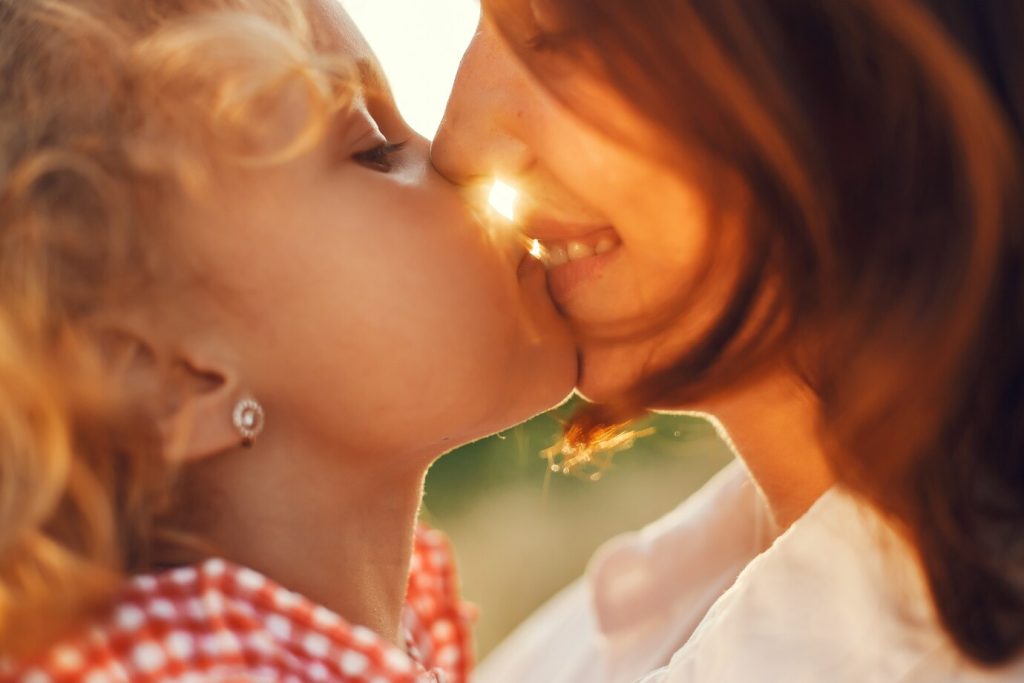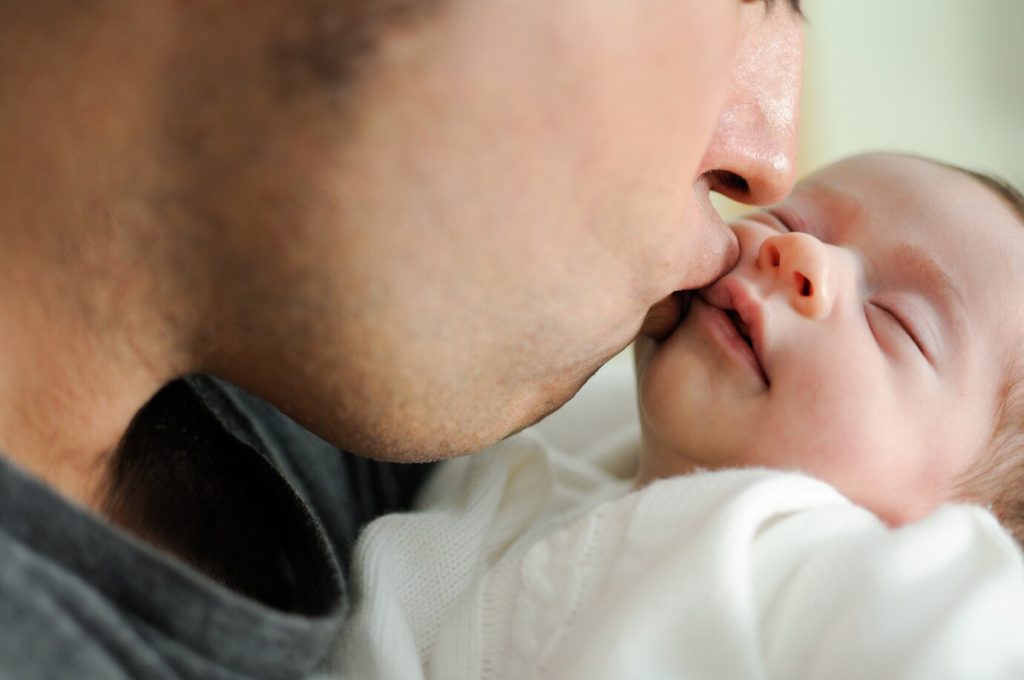How can parents protect their baby’s space without sounding harsh or unfriendly?
It’s a question many new parents quietly ask themselves—especially when faced with well-meaning strangers who can’t resist touching or leaning in for a kiss.
A thoughtful mom recently reached out, wondering how to gently but clearly say, “don’t touch my baby,” without creating awkwardness or tension. With seasonal illnesses on the rise and the memory of the pandemic still fresh, it’s a valid concern that many share. Her question reflects a very real challenge: how to keep babies safe while navigating the complex emotions of other adults.
She’s definitely not alone. Babies seem to attract attention wherever they go. Their sweet faces, tiny hands, and innocent expressions can trigger an almost irresistible urge in people to get closer. And sometimes, cultural beliefs add pressure—some traditions suggest that ignoring a baby might bring harm, so touching is seen as a form of blessing or goodwill.
Still, a parent’s top priority is always their child’s well-being. In those early days, when immunity is still developing, it’s completely okay—and absolutely necessary—to draw clear boundaries. Saying “don’t kiss my baby” or “please don’t touch my baby” isn’t about being rude. It’s about protecting your little one’s health and respecting their right to personal space, even before they can speak for themselves.
Kind, confident communication is key. A warm smile, paired with a simple explanation like, “We’re keeping our baby’s space small right now to protect their health,” can go a long way. Most people will understand and respect that—especially if it’s delivered with kindness and clarity.
Table of Contents
Kind but Clear: How to Set Boundaries and Say “Don’t Kiss My Baby”
How can parents kindly but clearly set boundaries to protect their babies from unwanted contact?
It all starts with simple, respectful language.
One gentle parenting principle that fits perfectly in this situation is: clear communication is an act of kindness. When it comes to your baby’s health and comfort, it’s okay to speak up. In fact, it’s necessary.
You don’t need to come up with the perfect words or stress about sounding impolite. A calm and clear statement like, “Please don’t touch the baby” or “We’re keeping a little distance right now to stay safe,” is often all it takes. Pairing that with a friendly smile can help soften the message while still making your intentions unmistakable.
And if you need to set an even firmer boundary—especially during cold and flu season—a gentle but confident, “Please don’t kiss my baby,” will communicate your message directly. Remember, protecting your baby’s personal space is more important than avoiding an awkward moment.
Parents in supportive communities have shared some helpful phrases and strategies:
- “We’re trying to limit contact while she’s still building her immune system. Thanks for understanding!”
- “We ask that everyone say hi with smiles instead of touch.”
- “Only feet touches, please—hands stay off. We give her a foot bath at home!”
Another parent shared a relatable comparison: “I always tell my kids to ask before they pet someone’s dog. Maybe grown-ups should do the same with babies!”
These examples show that kindness and boundaries can absolutely go hand in hand. You don’t need to explain everything. You don’t need to apologize. A short, polite statement is enough. When it comes to keeping your child safe, less really is more.
Using phrases like “don’t kiss my baby” gives your message both clarity and impact. You’re not being rude—you’re being a protective parent, and that’s something worth admiring.
Boundaries Begin with Self-Respect: Why Saying “Don’t Kiss My Baby” Matters
Setting boundaries around your baby isn’t just about avoiding germs—it’s also about honoring your values and building self-worth. When someone reaches out to touch your child, and you hesitate to say something because you don’t want to disappoint them, that’s a very human response. Many parents—especially those who’ve struggled with people-pleasing—know exactly how hard it can be to say no.
But here’s the truth: your voice matters. Your feelings are valid. And when it comes to your baby’s safety and comfort, your choices are more than enough reason to speak up.
At its heart, saying “don’t kiss my baby” is an act of love—not only for your child but also for yourself. You’re affirming that your boundaries deserve to be respected. And while it might feel awkward or even uncomfortable in the moment, honoring those boundaries builds long-term confidence and inner peace.
Author and therapist Nedra Glover Tawwab describes boundaries as “what you need to feel safe and supported.” Her book, Set Boundaries, Find Peace, offers a practical and compassionate approach to building healthy limits in every area of life. For a new parent, that might mean kindly asking others not to kiss or touch their baby—especially during flu season or in crowded public spaces. And that’s okay. You don’t need permission to protect your family.
It’s also important to remember that how others react is not your responsibility. If someone seems upset when you say, “please don’t kiss my baby,” that doesn’t mean you’ve done anything wrong. Their discomfort isn’t yours to carry. Your role is to care for your child—not to manage the emotions of others.
And yes, saying no might feel uncomfortable at first. But discomfort is temporary, while resentment can linger. Choosing to speak up may take practice, but like any skill, boundary-setting gets easier with time.
You’re not just advocating for your baby—you’re modeling healthy communication and self-respect. And that’s a powerful gift for both you and your child.
Setting Limits with Love
When it comes to parenting, especially in those precious early days, setting healthy boundaries is one of the most empowering tools a caregiver can develop. It isn’t just about keeping germs away—though that’s certainly important. It’s also about making choices that support a family’s emotional wellbeing and personal values.
1. Understanding Boundaries: What They Really Mean
Think of a boundary like a gentle fence around a safe space. It’s not about pushing people away—it’s about creating an environment where a parent and baby can thrive. Just like a playground fence allows children to run freely without fear, clear boundaries help families feel more confident and secure.
When a parent says, “don’t kiss my baby,” they’re not rejecting love or affection—they’re drawing a line that keeps their child safe, especially during vulnerable times like cold and flu season. This kind of boundary is not only valid, it’s a vital part of caring for a baby.
2. Taking Action: How to Set Boundaries That Stick
Boundaries don’t magically appear—they’re shaped through thoughtful reflection and intentional decisions. For example, a new parent might decide they’re not comfortable with visitors holding the baby without washing their hands, or that only certain people can visit during the first few weeks.
These decisions may need to be communicated and even negotiated with family, partners, or coworkers. It could mean blocking off certain hours each day for screen-free bonding time or setting rules around physical touch. Saying something like, “We’re asking everyone to please respect our wishes—don’t kiss my baby,” is a clear, kind way to enforce those choices.
Every family’s boundary will look a little different. One parent might allow hand-holding but draw the line at kissing. Another might prefer no touch at all during the newborn stage. And both are perfectly okay. What matters is that the boundary aligns with what feels safe and respectful to the parent and baby.
3. Honoring Your Own Boundaries: Following Through with Compassion
Setting a boundary is one thing—honoring it is another. It’s easy to say you’ll log off work by 5:00 PM or ask others not to touch your child. But when those moments actually happen, following through can feel uncomfortable—especially if someone reacts negatively.
Still, a parent’s job is to prioritize their baby’s health and emotional safety. Holding firm with a simple, “don’t kiss my baby, thank you for understanding,” can be done with kindness and grace. And if someone takes offense, that doesn’t mean the parent is in the wrong.
Consistency is key. The more often a parent sticks to their boundary, the easier it becomes for others to respect it too. And when it’s truly necessary—like in emergencies or special exceptions—parents can choose to adjust their limits without guilt. A flexible boundary isn’t a broken one; it’s a thoughtful one.
Boundaries are a form of love. They say, “I care enough to protect what matters.” Saying “don’t kiss my baby” isn’t about being difficult—it’s about creating a safe space for a child to grow, love and be protected.

Conclusion: Protecting with Love, Speaking with Strength
At the heart of every boundary is love—a deep desire to protect and nurture. Saying “don’t kiss my baby” may feel uncomfortable at first, but it’s a powerful act of parenting that supports your baby’s health and your peace of mind. By setting clear, respectful limits, you’re not only advocating for your child’s wellbeing but also modeling the value of self-respect and confident communication. Your baby deserves a safe, gentle start in life—and you deserve to feel empowered while giving it to them.
Read also: “Why You’re Not the Same Parent to Your Second Child“
Follow us

Pingback: Unique and Engaging Daycare Event Ideas to Attract Parents - Purple Bees Child Care